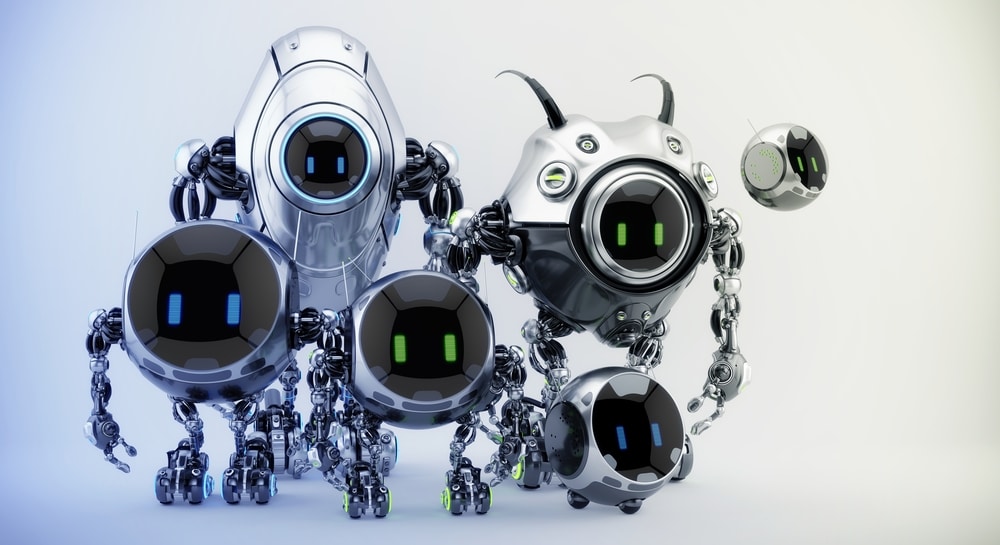During the recent WP Engine Summit in Austin, the Webby Awards previewed the latest installment in its annual Webby Talks leading to the 2018 show. The topic for this year—and the trend the organization will highlight through March in 200 talks during its 19-city Webby Talks tour—was a shoo-in after an election marked by talk of Russian bots invading social media and how algorhythms created an echo chamber for voters.
The topic of the presentation, “This Automated Life,” was chosen after the Webbys award show in May. Every year, the organizers take time to look through the entries and sort out common trends that surface to settle on one overwhelming topic to delve into in the months leading to the following year’s awards. This year, automation—and the way it shapes the world—was the hands-down winner, with no serious contenders, said Claire Graves, managing director of the Webby Awards. Graves, a former agency executive who has managed brands such as BBC and Orange, delivered the preview at WPE Summit and expanded on some of the ideas during a follow-up interview.
The ways technology changes our day-to-day habits are many, with the most ubiquitous being Facebook, said Graves. The average user spends 50 minutes a day on it, but without the algorhythm that curates posts, it would be unmanageable, she said.
Technology changes the way people interact with each other, and some serendipity is lost along the way, said Graves. She told a story of backpacking through Europe with her best friend and meeting a postman in Munich who invited them to stay with his parents. That interaction would be lost today, thanks to mapping apps and other technology, she said.
New apps area changing not only our personal relationships, but also our business relationships. Automation has also changed the hiring process and financial service, removing intuition, ego and human fallibility from the processes. New AI uses include assisting therapists and doctors in diagnosing patients. A number of pilot programs are testing the use of autonomous vehicles both in passenger transport and trucking. AI has even affected the creative process, as artists experiment with machine learning, said Graves.
While the fear of being replaced on the job by automation is a present threat to many professions, it is not the only one, said Graves. Facial recognition technology has raised a number of issues of security and privacy; one Chinese city has used facial recognition to shame jaywalkers into changing their behavior in order to reduce the rate of traffic accidents, but it raises the issue of privacy.
“The fear of losing a job to automation is real and the data is real, as well: Machine learning and automation is going to take a lot of jobs; it will create a lot of jobs, but it will change a lot of different industries. There is a real concern there, and real cause for concern,” said Graves.
The Webbys organization partnered with YouGov to poll adults to find out their feelings and concerns about automation. The poll found they largely understand the presence of AI in their lives; 79% have used some form of artificial intelligence in the last 12 months and 65% say automation has had a significant effect on their lives.
More than half the adults polled said they are uncomfortable handing over decisionmaking around different areas in daily life, from their choice of music and restaurants to their finances and health; 80% are uncomfortable handing over medical decisions to AI.
“What we tried to do was ask questions around things that what we think make people human,” said Graves. “From our research, people feel uncomfortable relenting decisionmaking around those things.”
“We think that it’s a very interesting space for marketers to start playing around and testing the waters. While expectations are this high, people are getting ready to use this technology more and more and they’re starting to feel more comfortable with it, so it’s a good time for marketers to start testing it with tools that make life easier,” said Graves.
She pointed out how driving directions are the one area were more people trust AI over humans, since they’re already using GPS tools to navigate: “As people start to use these tools like Google Maps or Waze, they start to feel more comfortable around it and start to trust it more.”
Expectations for the future are high; the public assumes than in the coming years, AI will be able to take over a number of functions, from driving cars to diagnosing medical conditions. This is a challenge to marketers, said Graves.
“It’s important that they experiment with the technology,” said Graves. “If brands and marketers are creating stuff that has real utility and is actually making life easier, making life faster or shifting time you would have spent for you to have more time to do other things, that’s hitting the nail in the head. That’s getting it right.”
Graves is taking “This Automated Life” on tour. To see when she will be speaking in your city, click here or check for social media updates at #WebbyTalks.





Join the conversation